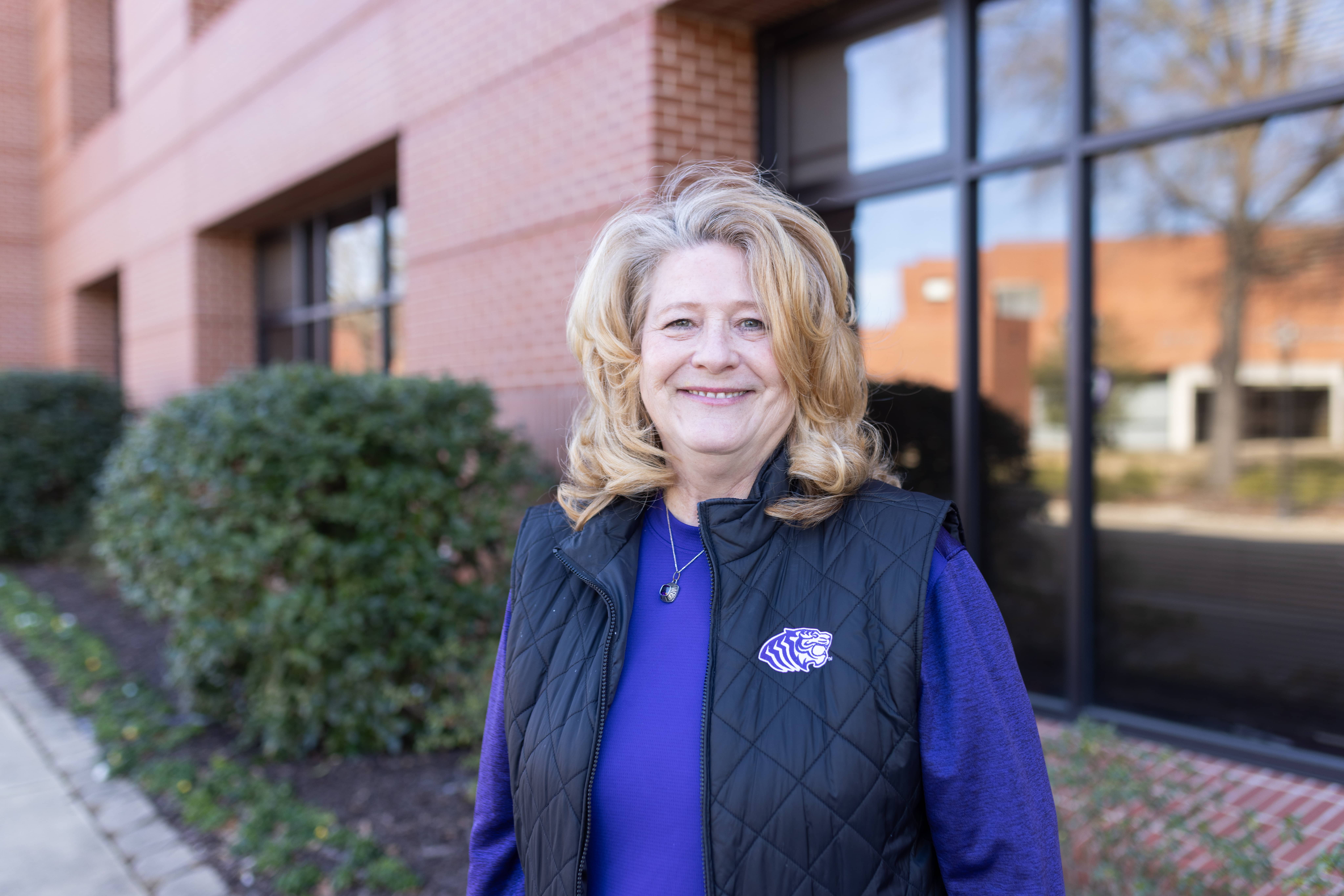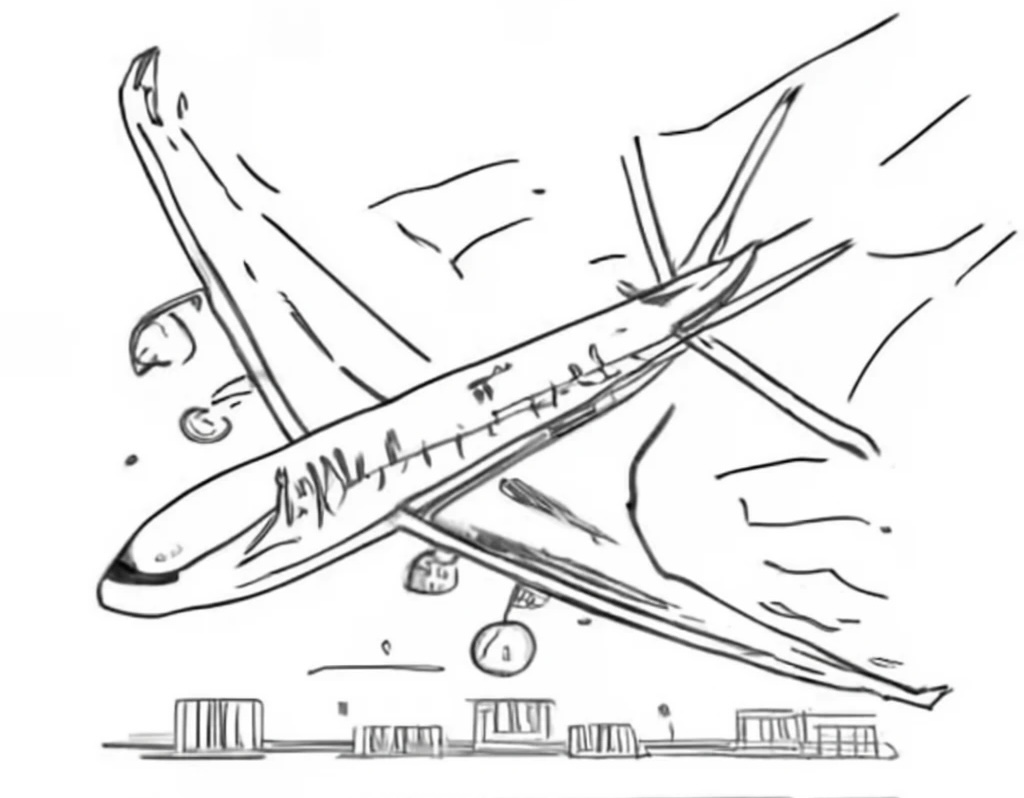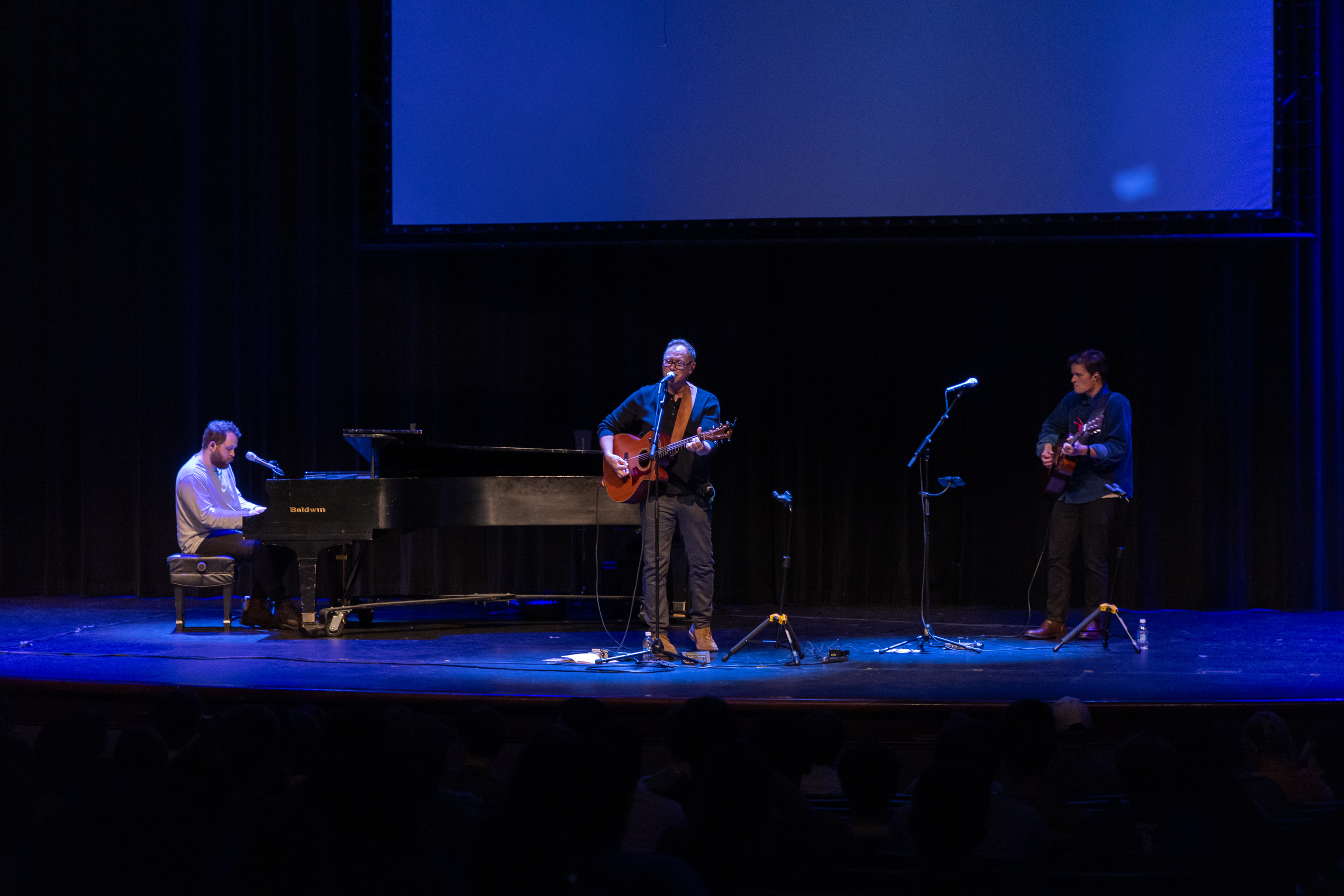National Book Award Finalist Salvatore Scibona, coming all the way from Cape Cod, Mass., will read a chapter of his novel “The End,” and present a lecture on March 3 at 7:30 p.m. in Young Auditorium.
The event is sponsored by the School of Interdisciplinary Studies, Dr. Johnny Wink, the School of Humanities, the English Department and the Carl Goodson Honors Program.
“The End” is, according to reviewer Sarah Shun-Lien Bynum, “as much a metaphysical novel as a historical one.”
Set in the 1950s, in an Ohio town, the book is chiefly comprised of in-depth characterizations. Bynum wrote that Scibona “charts hauntingly the journeys of [his characters’] souls.”
While reading “The End,” Wink, professor of English, was reminded of a writer he studied in graduate school, John Scheuer. Scheuer’s writing also focused on localities and characterizations.
“Writing a dissertation on [Scheuer] was a real love for me,” Wink said. “If I get a chance to ask Mr. Scibona about influences and the like, that’s the question I really want to put to him: is John Scheuer an influence on his writing?”
“The End” opens by introducing Rocco, a middle-aged “man in the shape of a light bulb,” who is “an unremarkable Christian.”
As the book continues, the reader meets character after character, each thoroughly described, until according to reviewer Z.Z. Packer, “all the ‘beautiful caves’ of the characters’ pasts connect, and ‘each comes to daylight at the present moment’ in ways that leave one touched, surprised and amazed.”
Packer also described Scibona as an heir to Virginia Woolf, and Bynum wrote “the language catches fire on every page.” And so it is not surprising that “The End” was the result of a long and arduous process.
“I’d been working on the book for more than 10 years before I sent my agent a provisional draft,” Scibona said. “He eventually read about six drafts, each significantly changed after the last. Then he sold it to Graywolf Press, which could not have done a better job with it.”
When a publishing company purchases a manuscript, however, the publication process has hardly ended.
“From the press, I got the editorial comments of about five or six other people over about a year and a half,” Scibona said. “Then the copy editor got a hold of it and brought a level of consistency to syntax and punctuation that blew my mind. Then the proofreader read it. Then we had to read the galleys. The whole process was like combing the hair of a girl who’s spent the night in a leaf pile.”
Although the job was taxing, Scibona was not discouraged.
“All of it was immensely enjoyable,” he said. “Much of it … caused stress, yes. But no part of making the book was a drudge. From sketching to copy editing, I loved all of it. Writing makes me happy.”
Scibona always hoped to be a writer, though not, as he explained, for love of the profession, but instead, for love of writing.
Since I was a little boy I wanted to write, yes,” Scibona said. “But to the extent that being a writer means wearing a special hat and brooding in the corner at cocktail parties, I have not wanted to be a writer. As in most other pursuits there’s a tension in writing between the desire to do the thing and the desire only to be the person who does the thing. That second desire comes out of narcissism, from which we all suffer, but which is poisonous in a piece of art. A teacher of mine once said it was like a stench coming off the page.”
Scibona briefly described his passion for literature.
“I have a hundred [favorite books],” he said, “The Bible, ‘Middlemarch,’ ‘Anna Karenina,’ the’ Iliad’, Don DeLillo’s ‘Libra’, Virginia Woolf’s ‘The Waves’, Haldor Laxness’s ‘Independent People.’ Each pierces me in its own way. One thing they all share is extraordinary word choice, even in translation. That’s what electrifies me in a piece of literature.”
Scibona encourages aspiring writers to, “Read. Widely, and all the time.”
Scibona’s interests, however, are scarcely limited to written word.
“I majored in liberal arts, officially, in the Great Books Program at St. John’s College in Santa Fe,” Scibona said. “The degree was the credit equivalent of majors in philosophy and math, with a lot of other stuff on the sides.”
When asked if his life turned out as he expected, Scibona responded, “No, I thought it would be much more miserable than it is.”
The National Book Award is, by many standards, quite a prestigious award, but assistant professor of English Dr. Mary Beth Long, who worked with Scibona several years ago at the Excel Academic Program at Amherst College, says that you might not realize Scibona’s prestige if you’d only just met him.
“He has just been so gracious and down to earth in every respect,” Long said, referring to Scibona’s attitude towards his visit to Ouachita, “…Even though he has been nominated for this huge award.”
Scibona even issued a challenge against Ouachita students in a Trivial Pursuit match.
Long said at the Excel Academic Program, Scibona was known for “his prowess in trivial pursuit.”
“Salvatore Scibona has challenged the students of Ouachita to a Trivial Pursuit competition,” said Amy Sonhiem, professor of English and director of the Carl Goodson Honors Program, “and he claims that he can beat any of them.”
During the afternoon before his lecture, student teams will compete against Scibona in a Trivial Pursuit match at the campus Starbucks, on March 3, from 3:15-5:15 p.m. Each member of the winning team will recieve a free autographed copy of “The End.”
Following the Trivial Pursuit match, Scibona will read an excerpt from “The End” and give his lecture at 7:30p.m. in Young Auditorium
“I’ll read a chapter from the book,” Scibona said. “And talk a little about the writing process.”
When asked if he was excited about his visit to Ouachita, Scibona responded, “Immensely so, yes … I can’t wait for my visit down there.”
After the presentation, there will be a Q & A session and a book signing. Scibona is pleased to discuss his work with Ouachita students.
“The book asks some rather Christian questions,” Scibona said, “About the limits of belief, for example, and about the way Christianity compels its adherents to give up the hopes of their egos and put their fates in the hands of something they cannot see, the hands of what the writer Joy Williams calls ‘the great cold grace that knows us.’ But I travel in pretty secular circles, and having written a sort of crypto-Christian novel, I’m looking forward to talking for once with some readers for whom I assume the Christian part of the book might be more urgent.“
Scibona concluded by saying, “This is all a way of saying I selfishly want to hear what all of you have to say.”




